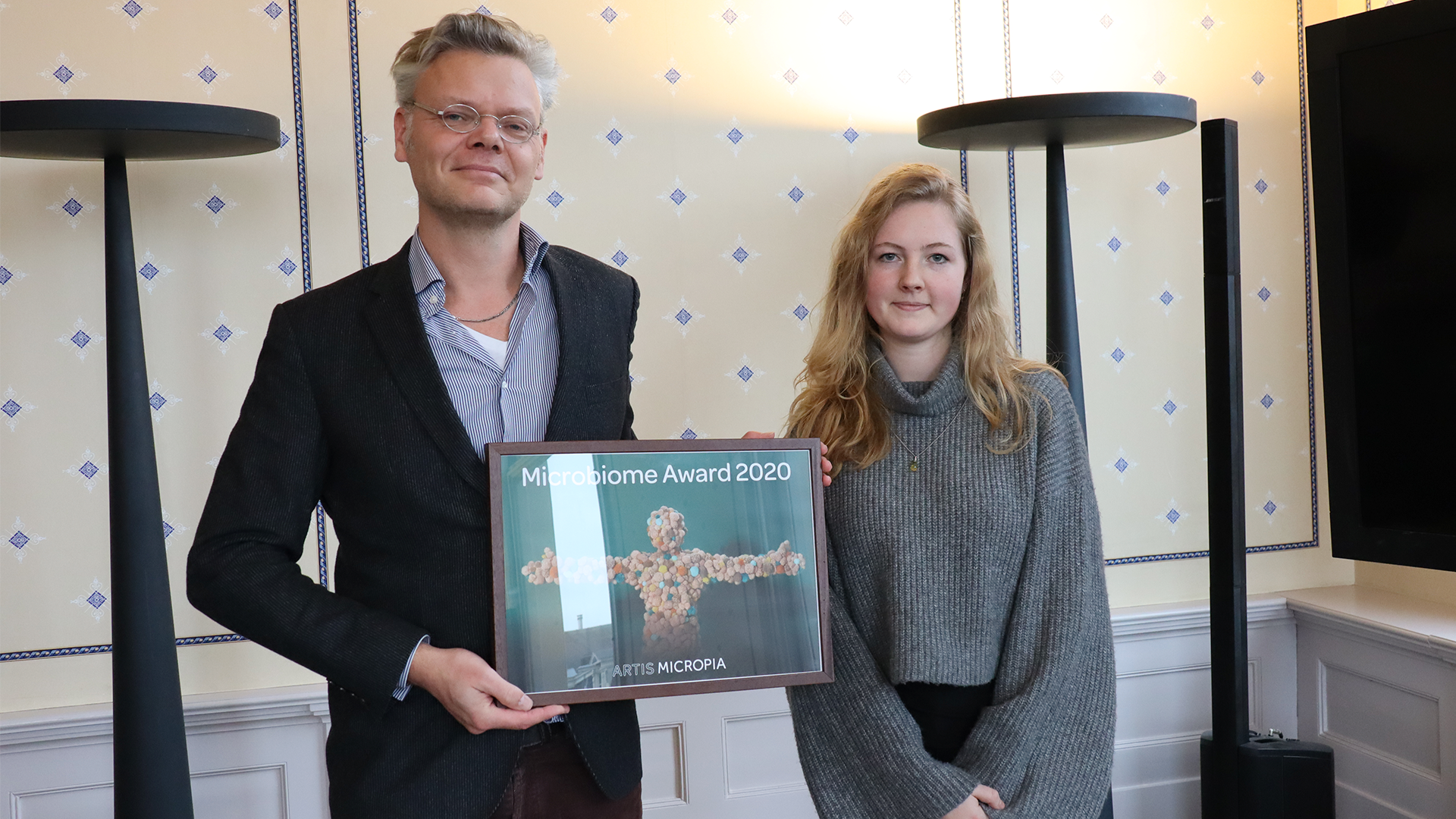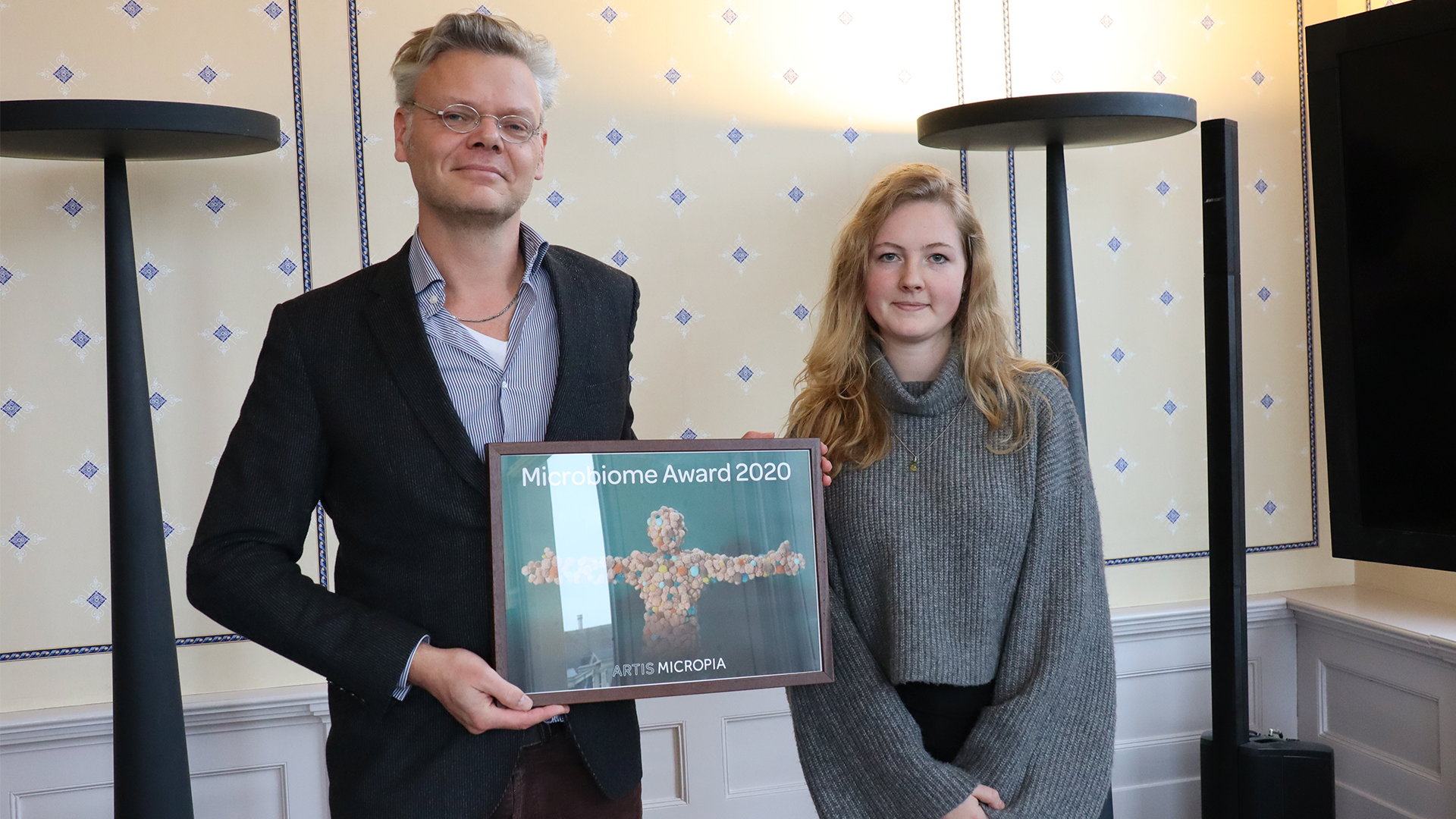
Winner Annika Dokter and Micropia professor Remco Kort. Photo ARTIS-Micropia, Eline Klaver.
Q-patch
Chronic wounds are becoming more common. These wounds do not close quickly enough, despite medical treatments. One of the reasons for this is that bacteria nestle in the wound and keep it open. The bacteria build a protective layer around them, called a biofilm. This makes bacteria much more difficult to combat. Nowadays chronic wounds are often treated with antibiotics in a long-term treatment that has many negative side effects, such as antibiotic resistance and a disruption of the microbiome. That is why alternative treatments are desperately needed. The Q-patch focuses on an important part in the formation of a biofilm: quorum sensing (QS). QS is a communication system that bacteria use to make a biofilm. The Q-patch contains the substance Thionine T310 which disrupts the quorum sensing and thus prevents the construction of a biofilm. Because the Q-patch also shields the wound, it is protected against pathogens and external contamination.
Microbiome Award
Microbiology investigates the smallest organisms, such as fungi, yeasts and bacteria. These microorganisms are the most powerful life on earth. The Microbiome Award has been created to make students enthusiastic about microbiology. Every year Micropia professor Remco Kort gives a lecture series about the human microbiome and how it functions in the event of illness and health. At the end of the series, the students write a research proposal with their newly acquired knowledge about the microbiome and recent research into it. The proposal describes an innovative application of microbes that can benefit our health or that of our planet. The author of the winning proposal has a chance to present the proposal to a network of scientists during the InVIVO Planetary Health Congress.

